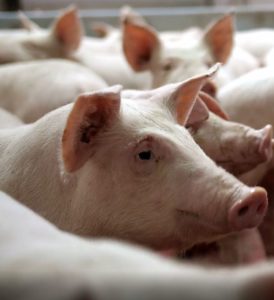Ukrainian export loophole closed
The European Parliament is proposing measures to put an end to the wave of cheap Ukrainian chicken meat flooding the European market through a loophole. The country avoided tariffs by exporting a special bone-in cut of poultry meat.
As a tradeoff, Ukraine is permitted to export 50,000 tons more chicken fillet exempt of import levies to the EU. The chicken fillets with a piece of bone and skin that were used in the loophole will now fall under the quota. This means that this chicken fillet can no longer be imported at unlimited quantities and tax-free.
The Loophole:
By cutting chicken fillet in a special way, with wing and skin attached, the Ukrainians used a loophole to get kilos more chicken fillets into the EU than the 20,000 tonnes agreed in the association agreement in 2014. Chicken fillet with a piece of wing could be imported into the EU without restrictions. After Dutch MEPs sounded the alarm, the European Commission entered into negotiations with the government in Kiev about adjusting the treaty.

Fabian Brockotter







